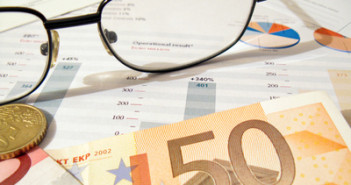The message that ECB president Mario Draghi sent was very calm and puts faith in temporary factors. Energy and food prices, austerity and also the bank stress tests are all to blame for low inflation, which he doesn’t see as materializing to outfight deflation.
However, there is one factor that wasn’t mentioned in the press conference: the exchange rate. The strong euro could exacerbate the situation. If the new information he is waiting for will prove otherwise, we could still get that March madness.
A lot of focus was put on inflation. This is what Draghi had to say:
- Low headline CPI: mostly because of food and energy prices.
- Low Core CPI: mostly due to “program countries” (Greece, Portugal, etc.).
- Low money growth (M3 fell to 1%): due to banks preparing themselves for the stress tests. They deleveraged towards the end of 2013, and from 2014 they will be ready to lend.
- We already expected a long period of low inflation.
- We already acted in November.
Strong euro – a problem
The result of his optimism was a stronger value for the euro: EUR/USD climbed 120 pips during his press conference.
And this is exactly the factor that could change things around: the strong value of the euro hurts exports from the euro-zone. This in turn weighs on economic growth and on wage growth, which is key to core inflation.
It also pushes import prices down and thus pushes headline inflation lower. If the current trend of a strong euro continues, the inflation picture could worsen.
And what about the stress tests (AQR)? Draghi certainly has a point there. However, it is still to be seen if money growth has really accelerated in the new year.
The next ECB rate decision is on March 6th, and by then we will get fresh figures for inflation, M3 and also GDP numbers which are due next week.
Given Drgahi’s tendency to switch from optimism to pessimism and back again, a tendency seen also now, it is still very early to rule out a negative deposit rate in March.
What do you think?
Further reading: EUR USD forecast.
